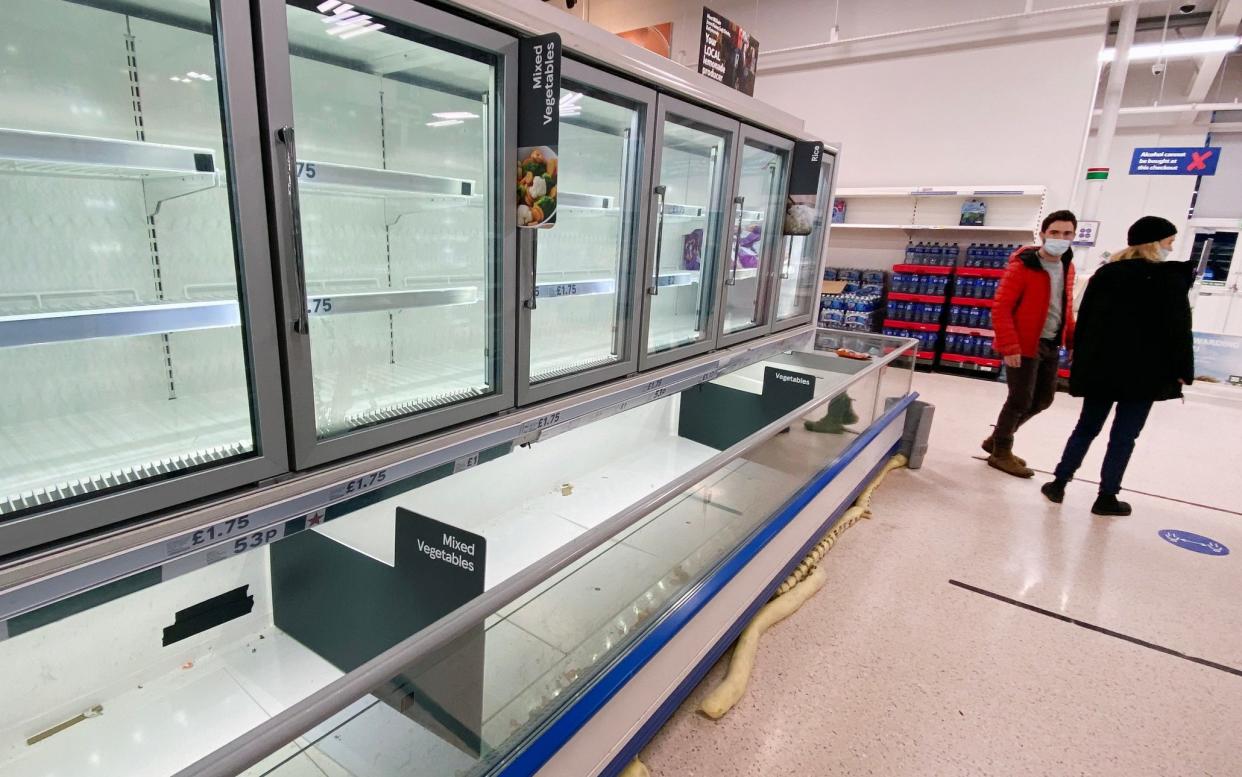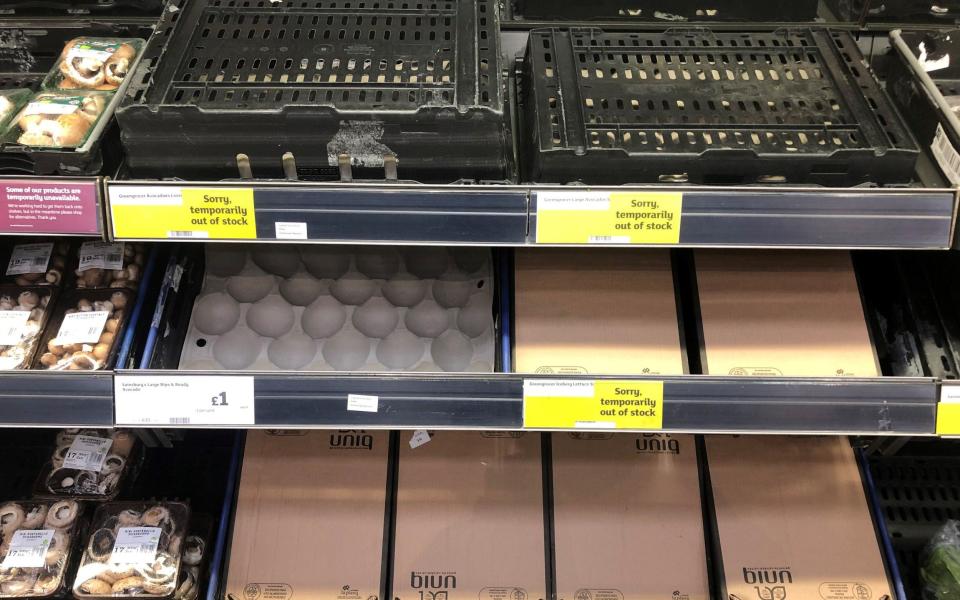Northern Ireland's schools and hospitals won't run out of food, says Government

The Government has insisted that schools and hospitals in Northern Ireland will not run out of food after a Stormont minister claimed there was a risk of shortages once the Brexit grace period ends.
A Cabinet Office source told The Telegraph "there is no evidence to suggest food supplies to schools or hospitals are at risk", adding that "supermarkets in Northern Ireland are reporting food supplies remain resilient".
On Thursday, Edwin Poots, the DUP's agriculture minister, claimed it had been "made very clear to us by the suppliers to both hospitals and schools that if the current arrangement for supermarkets isn't extended in a few months time, they will not be able to supply our hospitals and schools with food".
"This is a major crisis and I have raised it with Michael Gove," Mr Poots told BBC Ulster.
However, Stephen Farry MP, the deputy leader of the Alliance Party, accused Mr Poots of "scaremongering on steroids" and said: "There's no prospect that we're going to see a complete collapse of the food supply in Northern Ireland. It's just not going to happen."
Northern Ireland's health service suppliers have additional transit routes and stockpiling plans organised, while hauliers said they were pressing for speedy action to avoid "cliff edge" paperwork changes later this year.
Once the exemption expires on March 31, supermarkets will have to comply with more rigorous animal-health certification processes under the terms of Brexit's Northern Ireland Protocol.
Despite images appearing of empty supermarket shelves in Northern Ireland, a UK Government spokesman insisted that "the grace periods are working well, goods are flowing effectively and we are working with industry and the Northern Ireland Executive while they adapt to the new arrangements and on longer-term solutions".

"The UK has a highly resilient food supply chain – schools and hospitals will always have the food supplies they need, and we are confident there will be no disruption to these in April," the spokesman added.
He also confirmed that a dedicated Government team had been set up to work with supermarkets, the food industry and the Northern Ireland Executive to develop ways to streamline the movement of goods in accordance with the protocol.
It comes as 10 per cent of trade leaving the UK is being turned back at the border because drivers do not have the correct paperwork, fuelling fears of a growing trade crisis and potential shortages in goods. Haulage groups said complex and confusing Brexit rules had caused lorries to be stuck or refused crossings at borders after failing to produce the correct customs documents.
Meanwhile, a spokeswoman for Northern Ireland's Department of Health said the Business Services Organisation (BSO) confirmed that "their suppliers do have a range of contingencies in place, such as additional stockholding, use of alternative transit routes or moving to local supply".
The department said it had not received any reports from any of the region's health trusts flagging major issues related to food shortages or supply difficulties.
She added that the BSO had worked with trust catering managers to agree "a core list of ambient products" of which they have asked suppliers to reserve an additional four to six weeks of stock.
Seamus Leheny, the Northern Ireland policy manager at Logistics UK, which represents hauliers, called on the Government to "get a solution in the coming days and weeks, not leaving it to March".
Aodhán Connolly, the director of the Northern Ireland Retail Consortium, said: "Retailers are working hard to continue to supply Northern Ireland given the changes that were brought in at the end of the transition period."
He added that "retailers are adept at quickly changing supply chains, and while there may be slightly less choice there is plenty of stock", calling on "the UK Government and the EU to work with us to find long term workable simplifications that keeps choice and affordability for Northern Irish families while keeping NI business competitive".

